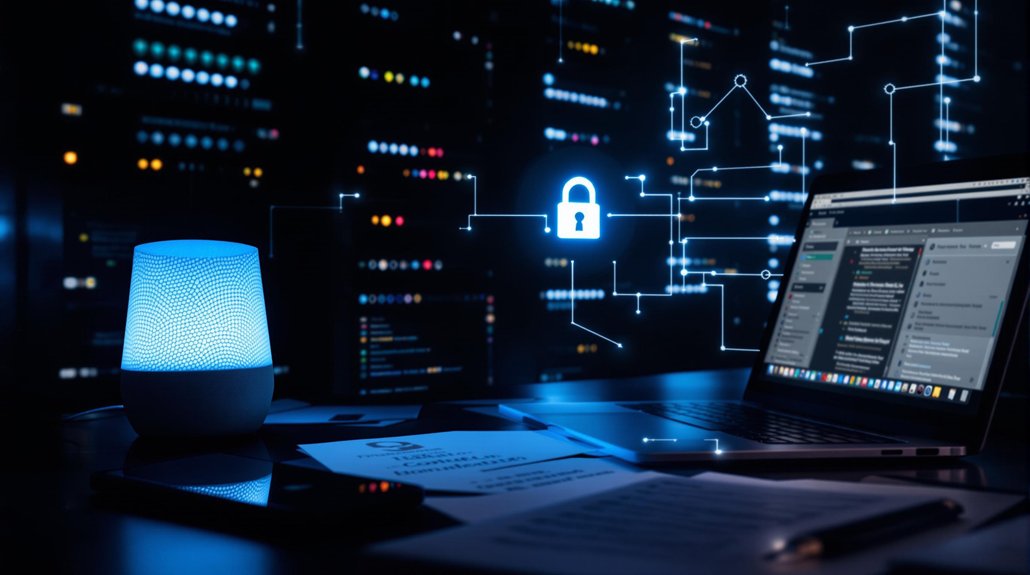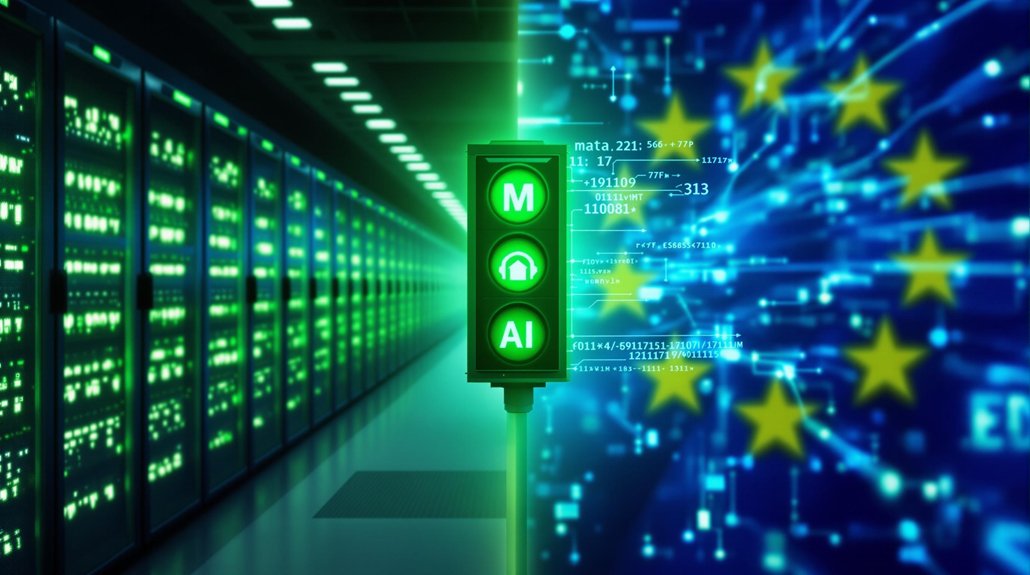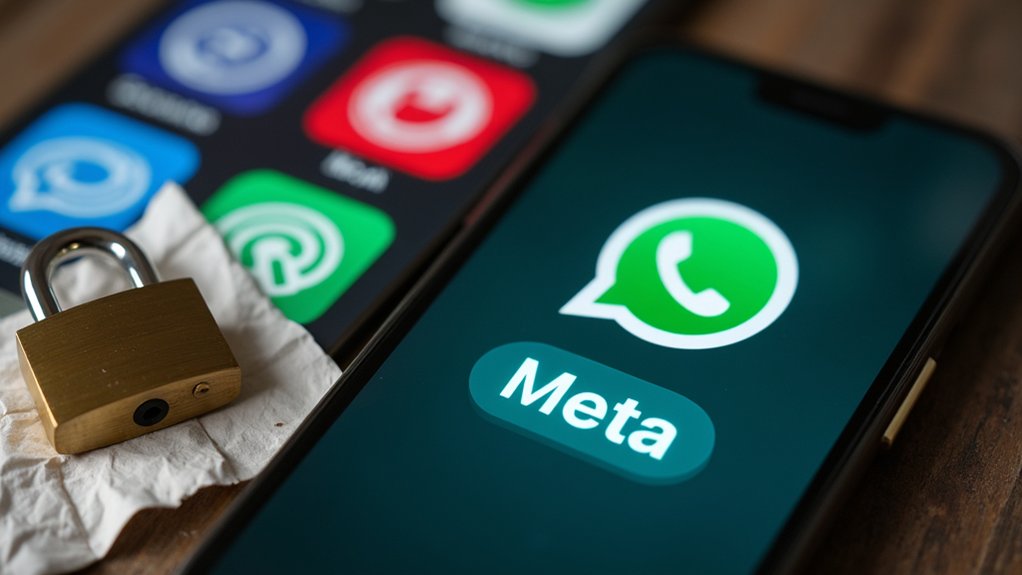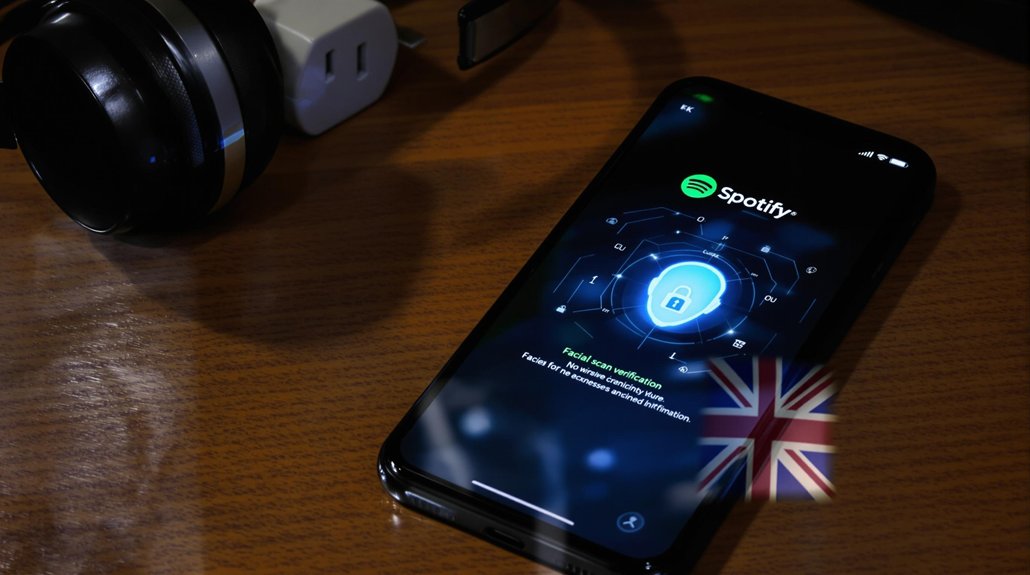AI tools collect vast amounts of personal data, often without users’ knowledge. These systems store conversations, documents, and behavior patterns for training purposes. Privacy risks include the embedding of confidential information in AI models and potential data breaches that cost companies millions. The regulatory landscape hasn’t kept pace with rapid technological advancements. While organizations develop solutions like encryption and on-device processing, users remain vulnerable. The digital footprints we leave behind may reveal more than we intend.
While AI tools continue to transform daily life and business operations, they bring significant privacy concerns that often go unnoticed by users. Many people don’t realize that the AI assistants they rely on collect vast amounts of personal data to improve their performance. This information doesn’t simply disappear after use – it’s often stored in databases and may become part of future training datasets.
The methods these AI systems use to gather information raise additional worries. Web scraping tools can collect data at massive scales, potentially violating website terms of service. APIs that make automation easier might share sensitive details without users fully understanding the implications. Even crowdsourced data collection methods risk exposing user inputs to potential misuse.
Behind the scenes, AI models often incorporate user data into their training without explicit permission. Large language models might include confidential conversations or documents shared by users. This creates a troubling scenario where private information becomes embedded in systems without proper consent or transparency. The lack of clear legislation on data processing and usage only compounds these privacy concerns.
Recent studies show that 85% of enterprises consider AI tools essential despite these privacy concerns. The tools analyzing emails, documents, and other communications can inadvertently reveal private details. The average data breach cost involving AI systems reaches $4.88 million, reflecting the significant financial impact of these privacy vulnerabilities. Even more concerning, predictive algorithms can sometimes deduce sensitive information from seemingly anonymous datasets, creating privacy vulnerabilities few users anticipate. The quality and accuracy of collected data directly impacts the AI effectiveness, potentially multiplying privacy risks when low-quality or biased data leads to false conclusions about individuals.
The regulatory landscape surrounding AI and data privacy remains underdeveloped. Many AI applications operate in legal gray areas, with inconsistent rules across different countries. While regulations like GDPR attempt to address data protection, enforcing compliance with AI tools presents unique challenges.
Some organizations are working to address these issues through improved encryption, transparent data policies, and on-device processing that keeps information local. However, the rapid advancement of AI technology continues to outpace privacy protections.
Until stronger safeguards and clearer regulations emerge, users should remain aware that their digital secrets may not stay secret when shared with AI tools.









